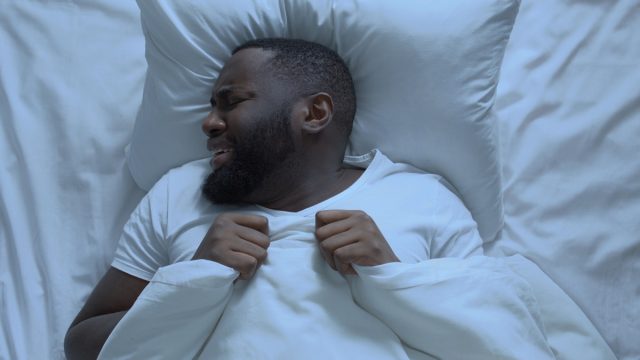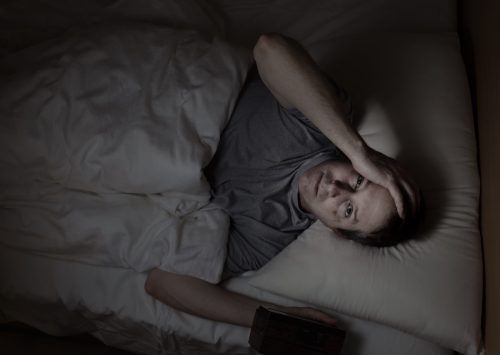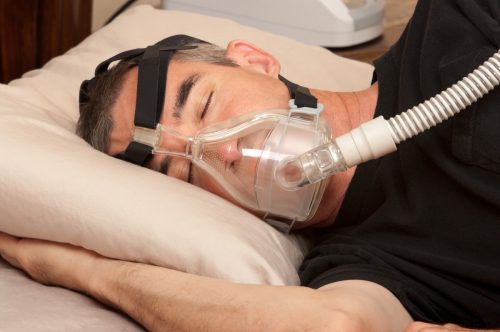6 Health Problems That May Show Up in Your Dreams, Doctors Say

Anyone who’s had a fever is probably familiar with the vivid, often upsetting dreams that can accompany a high temperature—after all, that’s where the saying “fever dream” comes from. But can a dream clue you in to a health problem that isn’t just in your dreams? You might be surprised to find out that the dramas playing out in your head as you sleep mean more than you thought.
Dalia Lorenzo, MD, a neurologist at Baptist Health Miami Neuroscience Institute, spoke with Best Life about sleep and our brains. “Sleep is super important,” she says. “If you calculate that you need seven hours of sleep every 24 hours for 80 years, that’s a lot of years of sleep time. There must be an important function behind us sleeping so much—and there is. When you sleep, you enter an orchestrated set of different stages. It’s a very active process that is very important for the neurons, who make us the people we are, to refresh themselves.”
Read on to find out about six medical concerns that can creep into your dreams, and what doctors say about the (perhaps surprising) connection between our physical health and our subconscious.
READ THIS NEXT: If You’re Having These Dreams, It Could Be a Parkinson’s Sign, Experts Warn.
1
Anxiety and depression

If you’re anxious, that feeling is likely to invade your dreams—and the same goes for depression, according to researchers. “Chronic nightmares are very common in psychiatric disorders,” according to a study published in the Journal of Clinical Medicine in Dec. 2020.
2
Cancer

The data on this is limited, and not all doctors agree, but there have been cases in which a patient was diagnosed with cancer after having an upsetting dream.
Deirdre Barrett, PhD, a dream researcher at Harvard Medical School and author of The Committee of Sleep, told Discover that using dreams to help diagnose a medical issue “is controversial in broader medical professions.”
In her book, however, she recounts the story of a person who dreamed that a panther bit him on his back. When he woke up, he saw a mark in that spot, which turned out to be cancerous. Another patient went to the doctor to have a spot looked at, and after being told it was benign, had a series of dreams about the spot—including one in which she was told to get it checked again. She did, and it was an early melanoma.
According to Discover, “Anecdotes like these are not uncommon, and some are far more dramatic.”
READ THIS NEXT: I’m a Pharmacist, and This Is the Sleep Aid I Recommend.
3
Heart disease

A 2003 study published in Climacteric found that women ages 40-64 with irregular heartbeats and chest pain experienced more nightmares than their peers, especially after menopause. Researchers theorize that this is because heart disease decreases the amount of oxygen that reaches your brain—which can lead to bad dreams.
“I think dreams can access anything in our body or our mind, in the broadest sense, including things we’re not at all conscious of,” Barrett told Discover. “I think that dreams sometimes tell people about an illness that they’re not already aware of, and [before] any very obvious clinical symptom.”
4
Problems with alcohol

If you’ve ever unusually vivid dreams after drinking one too many glasses of wine, scientists say there’s a reason. When you fall asleep under the influence, rapid eye movement (or REM sleep) is suppressed, explains Real Clear Science. REM sleep is when we dream, so when your body has metabolized the alcohol in your system, you’ll experience “REM rebound,” their experts explain.
“When our brains are deprived of REM sleep, even for only a matter of hours, they compensate by boosting the duration of REM sleep and increasing the ease at which we enter this phase,” they write. “During REM rebound, dreams can also be more intense.”
If you’re consistently having upsetting dreams that keep you from getting a peaceful night’s rest, it could be a red flag to reconsider your drinking habits.
5
Sleep apnea

It may not be too surprising to find out that people with obstructive sleep apnea (OSA), a chronic condition in which they stop breathing throughout the night, often dream that they can’t breathe. “Patients have had terrifying dreams of drowning or suffocation,” William Kohler, MD, medical director of the Florida Sleep Institute, told HuffPost. “In reality, their airway is blocked off.”
A 2019 study published in Frontiers in Neurology shed further light on the connection between dreams and OSA.
“Contradictory results have been reported concerning dreams in patients with OSA; while some investigators have reported less dreams in OSA patients, others have described that patients with OSA have increased dreams with emotional content, mainly violent and hostile content,” the authors wrote. “Although there are reports of respiratory-related dream content in patients with OSA, most studies that have assessed the dream content of patients with OSA revealed that respiratory-related dream content was unusual.”
Still, if you’re having dreams of not being able to breathe, it’s worth a visit to your healthcare professional to get checked for OSA, as the study also found that subjects who used a CPAP (short for continuous positive airway pressure) machine while sleeping reported having fewer nightmares.
For more health advice sent directly to your inbox, sign up for our daily newsletter.
6
Parkinson’s disease

Do you thrash around in your sleep, moving your arms and legs in response to what’s playing out in your subconscious? If so, you may want to get checked for Parkinson’s disease.
“Not a lot of people know about REM behavior disorder, but it’s where individuals start to act out their dreams,” Lorenzo tells Best Life. “In order for us to not act out our dreams, the brain sends stimuli to paralyze us, so our brains are active, but our muscles are paralyzed. What can happen is some people can later lose this paralysis. While this can be caused by certain medications and alcohol consumption, if it’s not, it can be a warning sign that Parkinson’s disease is on the horizon in the next 10 years.”